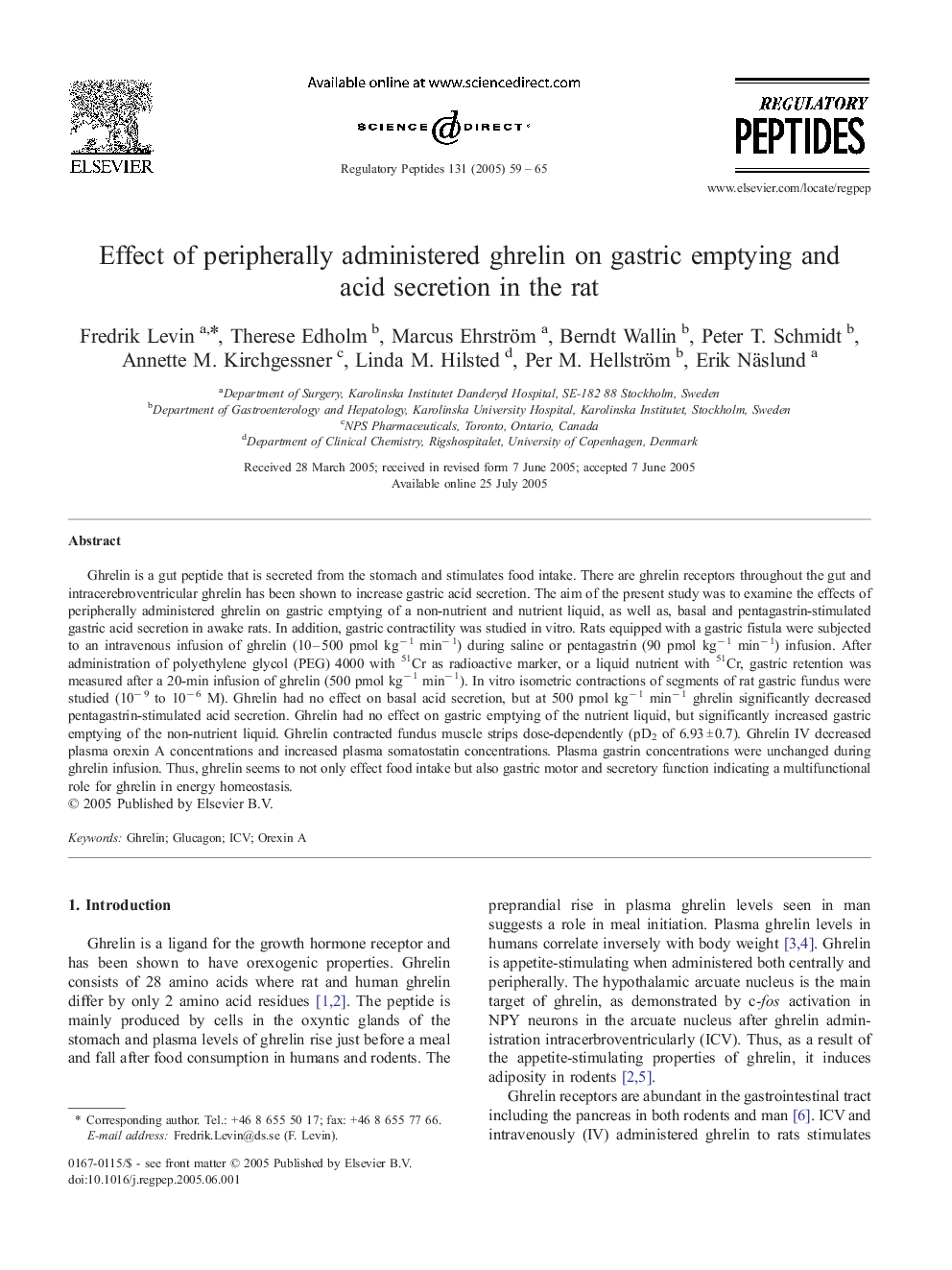| Article ID | Journal | Published Year | Pages | File Type |
|---|---|---|---|---|
| 9894370 | Regulatory Peptides | 2005 | 7 Pages |
Abstract
Ghrelin is a gut peptide that is secreted from the stomach and stimulates food intake. There are ghrelin receptors throughout the gut and intracerebroventricular ghrelin has been shown to increase gastric acid secretion. The aim of the present study was to examine the effects of peripherally administered ghrelin on gastric emptying of a non-nutrient and nutrient liquid, as well as, basal and pentagastrin-stimulated gastric acid secretion in awake rats. In addition, gastric contractility was studied in vitro. Rats equipped with a gastric fistula were subjected to an intravenous infusion of ghrelin (10-500 pmol kgâ 1 minâ 1) during saline or pentagastrin (90 pmol kgâ 1 minâ 1) infusion. After administration of polyethylene glycol (PEG) 4000 with 51Cr as radioactive marker, or a liquid nutrient with 51Cr, gastric retention was measured after a 20-min infusion of ghrelin (500 pmol kgâ 1 minâ 1). In vitro isometric contractions of segments of rat gastric fundus were studied (10â 9 to 10â 6 M). Ghrelin had no effect on basal acid secretion, but at 500 pmol kgâ 1 minâ 1 ghrelin significantly decreased pentagastrin-stimulated acid secretion. Ghrelin had no effect on gastric emptying of the nutrient liquid, but significantly increased gastric emptying of the non-nutrient liquid. Ghrelin contracted fundus muscle strips dose-dependently (pD2 of 6.93 ± 0.7). Ghrelin IV decreased plasma orexin A concentrations and increased plasma somatostatin concentrations. Plasma gastrin concentrations were unchanged during ghrelin infusion. Thus, ghrelin seems to not only effect food intake but also gastric motor and secretory function indicating a multifunctional role for ghrelin in energy homeostasis.
Related Topics
Life Sciences
Biochemistry, Genetics and Molecular Biology
Biochemistry
Authors
Fredrik Levin, Therese Edholm, Marcus Ehrström, Berndt Wallin, Peter T. Schmidt, Annette M. Kirchgessner, Linda M. Hilsted, Per M. Hellström, Erik Näslund,
